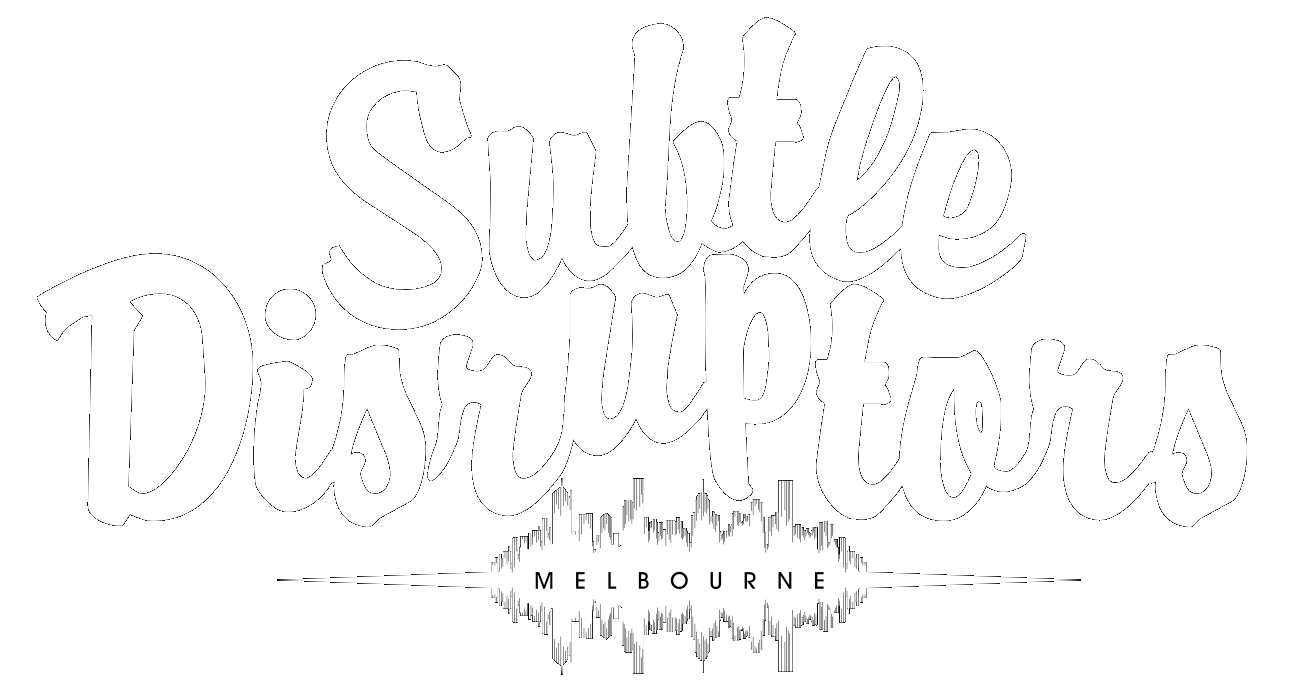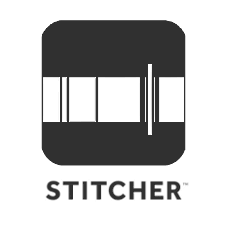I would like to imagine that it (being a Subtle Disruptor) is what you can do in every moment you are living in every aspect of your life.
Seven years ago Maria Cameron and her husband made a small, simple decision to change their way of thinking. During their years at La Trobe University they had been involved in student activism, revolutionary socialist politics, and had the mindset that they needed to change the world. The shift they made was to drop their primary aim of changing the world through social justice, to instead shift their focus to ensure they themselves lived according to ethical principles, and to change the daily practises of their own lives.
A few of decisions spilled out of this new mindset straight away, decisions that involved no long-term evaluation and calculation of how it may impact their lives and the lives of those around them. It was about seeing a decision that made sense for them ethically, economically, practically, and in regard to their wellbeing, and then adapting their lives according to the consequences of these decisions.
One of the decisions was to sell their car and get around on bicycles. Another was to grow their own food. And a third was to pool their resources and jointly buy a house with Maria’s sister and her husband.
Despite this lack of planning and an apparent lack of conscious intention, from these small decisions something marvellous has emerged within the house, the street and the suburb where they live. Labelled ‘The Hood’ by those who consider themselves part of it, these small decisions have evolved to create a diverse and rich community of people who all live within walking distance of each other and to a greater or lesser extent are connected with each other’s lives.
With no manifesto, no way to be officially ‘in’ or ‘out’, no formalised mailing list, website, Facebook group or leadership structure, this is a web-like community that is truly emergent. While there is a great diversity in backgrounds, opinions, needs and desires, Maria says there is a commonality in values between the members which boil down to something like this:
- living according to ethical principles: aligning what is good for the planet and good for people with the daily practises of everyday life;
- living a good life: creating time to enjoy the privileged way of living we have access to in Australia; and
- creative, artistic and artisan expression: including creating craft beer and food, kids of The Hood playing together, sharing music, painting and drawing.
But apart from these values (and probably even within these values) The Hood means something different to everybody who feels part of it, of which Maria estimates now includes 14 houses and between 30 and 50 people.
The property that Maria lives on has been labelled Hibi Farm – a micro suburban farm where those that live there use much of what is grown and produced from within its boundaries (an amazing amount of produce relative to its size). This includes (or has previously included) a variety of animals, including goats, chickens, ducks and bees.
The property also includes an abundance of vegetables, herbs, fruits and berries. Every day something is harvested from the garden, prompting a change of approach at meal times from ‘What do I feel like eating?’ to ‘What is available in the garden right now, and how creative can I be with it?’.
Part of the back fence between Hibi Farm and its rear neighbour has been torn down so that the two households can float between the two properties, with the kids often forgetting that they live in one of the houses and not the other. Porous boundaries and interconnections seem to be common aspects of people who are part of The Hood.
Responsibilities and produce are shared between Hoodies. About half of the people of the hood are involved with caring for the goats, with a roster for milking and maintenance and annual goat meetings. Food produced from different properties is often shared between the members, as are baby sitting duties (Maria has never had a need for a playgroup) and social activities. Gatherings of Hoodies are common, both formalised and spontaneous. Hibi Farm often becomes the place for people to congregate, with it not being uncommon for 20 or more people to come together to drink craft beer, share songs or celebrate a milestone.
There is great power in this group – if a Hoodie has an idea they can quickly gather a critical mass around it by sending out an email and sharing their thoughts. Everything from organising regular life-drawing classes to quickly sourcing mushy bananas for banana bread have been initiated in this way.
What also struck me was the sense that while people in The Hood are pushing boundaries and norms in the way they are living, they are still just living. There is nothing particularly radical in what is happening, but those who are part of it more than justifiably think it is a great and exciting thing they are part of.
When I asked her about a subtle disruptions she would one day like to be part of, Maria’s answer was congruent with the mindset that led to the emergence of this community. She said that nothing in particular came to mind because for her it was about focusing on the decisions in front of her. In making ethical decisions about the way she lives on a daily basis, the long-term consequences take care of themselves.
And the subtle thing Maria did in her own life was to make one small change, to give it a go, and then observe the consequences. For her this was choosing the ride a bicycle over owning a car, and the implications for herself and those around her have been profound.
I am excited about what is happening in the suburbs of Melbourne, about the connections and community people are choosing over isolation, workplace drudgery and private accumulation. I think The Hood is an organic response to what people are lacking in their lives and want more of, and I wouldn’t be surprised to hear about other examples of this type of community. Maria is warm and open in her sharing, and I hope you enjoy our conversation.
Podcast: Download
Subscribe: Apple Podcasts | RSS




Dear Adam,
FABULOUS interview!!! Check this out… just around the corner and I’m sure someone would love to do an interview with you! http://www.murundakacohousing.org.au/
All the best and LOVE the website/concept.
Cath (from da “Hood”)
Thanks for that Cath! I’ll be sure to have a look at Murundaka.
Another very enjoyable podcast from Subtle Disruptors, thank you Adam and Maria for sharing. We live in suburbia on its fringe west of Melbourne, and are engaged in a reuse and repair lifestyle, in a consumerist and throwaway society. Like Maria and Co we have been deviating from the norm of our neighbourhood. It feels liberating!
Rude Record aka Karen and Danny Ellis